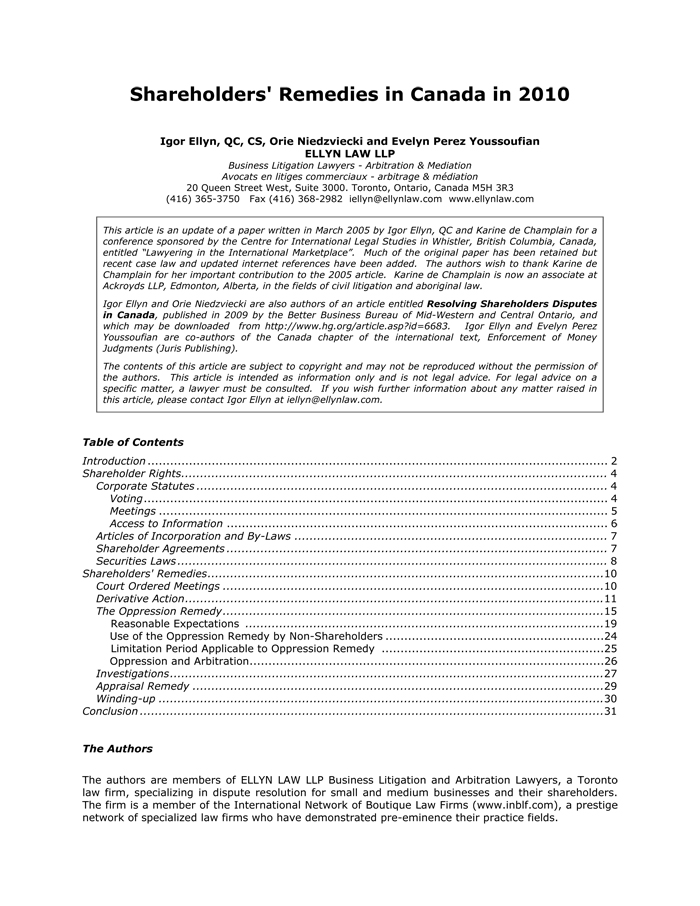When advising business clients about doing business in Canada, lawyers must turn their minds not only to the kinds of corporate vehicles which Canadian law permits but also the remedies permitted if disputes arise. In this paper, we highlight the range of remedies available in the common law jurisdictions of Canada to protect shareholders and others from abusive corporate action.
This paper begins by discussing the various sources of shareholder rights, including corporate statutes, articles of incorporation and by-laws, and shareholder agreements. Although securities laws will also be briefly mentioned, the securities regime is exceedingly complex and it is beyond the scope of this paper to address it in detail. We then discuss the remedies provided by corporate statute to shareholders who are aggrieved by the manner in which management conducts the business and affairs of the corporation, including voting, court-ordered meetings, derivative actions, the oppression remedy, investigations, appraisals and court-ordered winding-up on the “just and equitable principle”.
The oppression remedy, widely acknowledged to be the most powerful weapon in the shareholder’s arsenal of remedies, focusses on two particular points: the broad definition of “complainant” under corporate statutes, and the manner in which the courts have defined the reasonable and legitimate expectations of shareholders and other “proper persons” under the oppression remedy.
The authors are members of ELLYN LAW LLP Canadian Business Litigation & Arbitration Lawyers, a Toronto law firm, specializing in dispute resolution for small and medium businesses and their shareholders. The firm is a member of the International Network of Boutique Law Firms (www.inblf.com), a prestige network of specialized law firms who have demonstrated pre-eminence their practice fields. Ellyn Law LLP is INBLF’s designated Toronto firm for shareholder disputes and arbitration.
